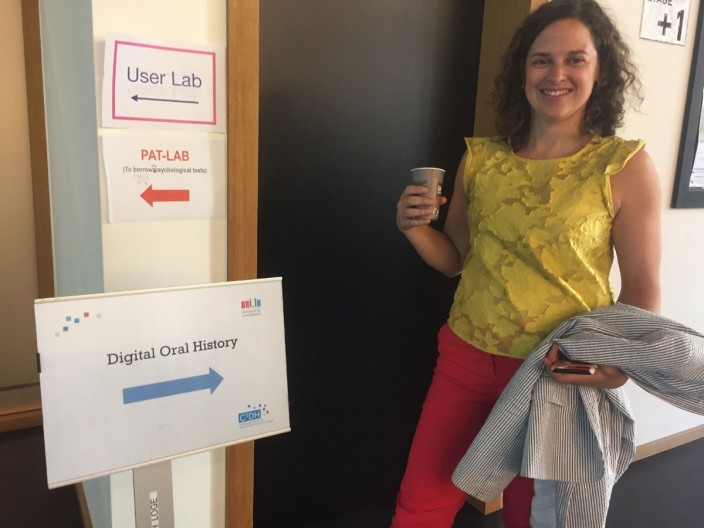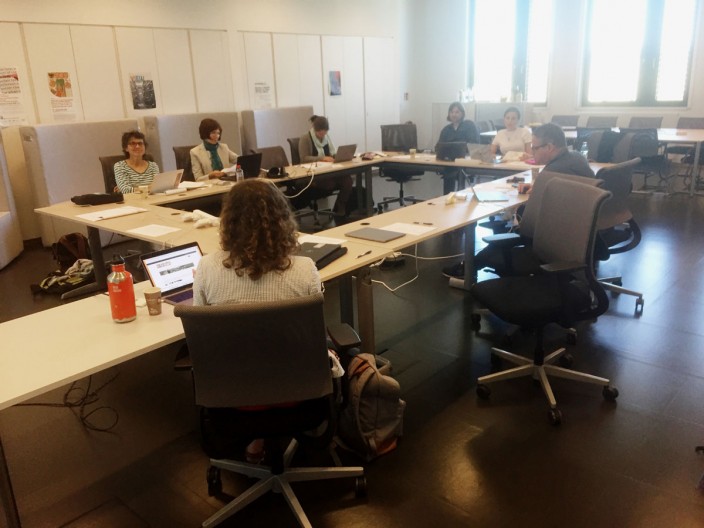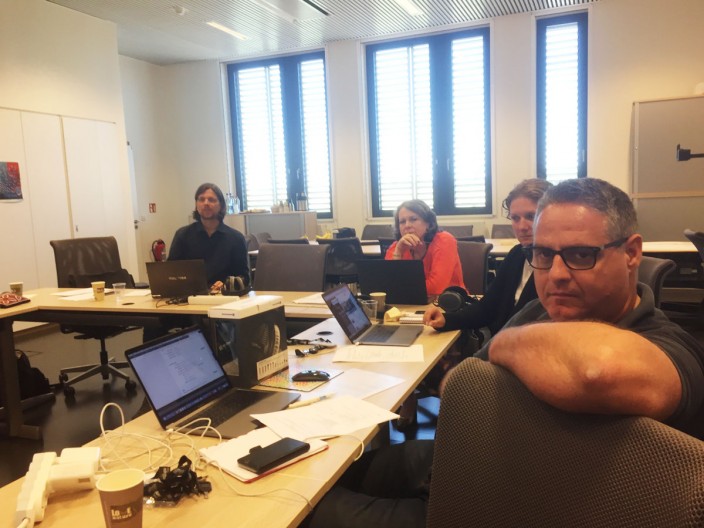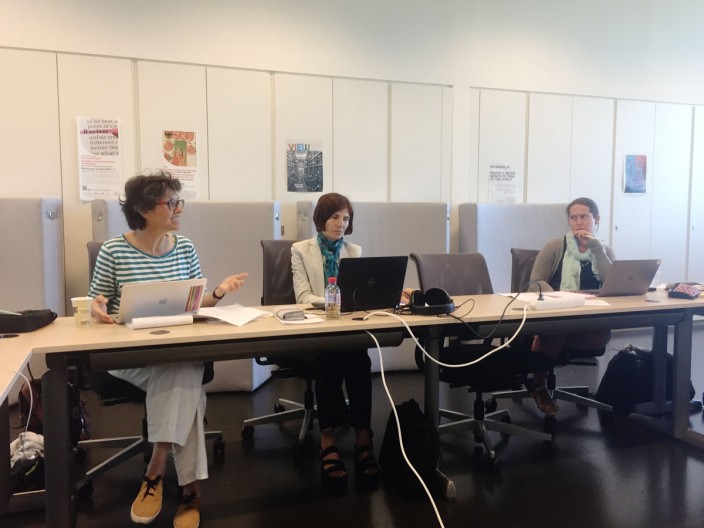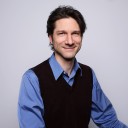This two-day workshop focused on some of the tools and practices currently used in the United States for oral history content management, online curation, and digital humanities pedagogy. The workshop included demonstrations, practical exercises, and discussions meant to inform future oral history research in Luxembourg in its various forms, whether for singular researchers or project managers. We presented and discussed an array of practices and approaches defined as oral history digital indexing (OHDI), and explored in depth a particular OHDI tool called Oral History Metadata Synchronizer (OHMS).
The workshop presenters represented different yet complimentary approaches to OHDI in the US. Dr. Douglas Lambert (C²DH) brought his broad knowledge of audio/video content management for oral history, drawn from his experience with Michael Frisch and The Randforce Associates (Buffalo, NY, USA). Predicated on software tools for indexing a/v files directly by media timecode, in 2002 Randforce began developing indexing methods for individual oral history projects as well as large research projects with libraries, museums, and archives.
Co-presenting the workshop was Dr. Janneken Smucker from West Chester University in Pennsylvania, USA, who integrates the OHMS system along with the Omeka web publishing platform into her digital history courses, including an upper-level course called “Immigration and Digital Storytelling.” Dr. Smucker helped develop a suite of plugins that link and optimize OHMS and Omeka (both open source), making them easier for non-institutional projects and non-programmers to use. OHMS is a convenient environment for indexing oral histories and sharing them online, making them discoverable and accessible to wide audiences. Institutional archives as well as smaller organizations and college classrooms have embraced the tool, and it may be useful in Europe and in Luxembourg as well.
The workshop included a review of major digital oral history projects, including the New York Public Library site and the Studs Terkel Radio Archive, as well as a project that Dr. Smucker developed using OHMS called Philadelphia Immigration. Other sites illustrated the benefits of fluid access within and across interviews, made possible when oral histories are indexed at the media timecode level. A robust example is found at the National Library of Australia, where indexing text works fluidly with a multimedia player. Additional OHMS sites included the award winning Goin’ North project/site and many others (available through the OHMS website).
Several hands-on exercises allowed participants to build experience with different styles of indexing, useful both for specialized research projects and large archival collections. While gaining understanding of fundamental concepts in indexing, participants were able to index A/V in OHMS and in some cases use their own material to experience the potentials and challenges of OHMS for enhancing access.
We also discussed the concept of metadata as well as the use of thesauri for coding/tagging material. “Metadata” is integrated in OHMS conceptually and profoundly, with a Dublin Core-derived set of fields available for each indexed time point. OHMS also allows for tags (terms, keywords) to be drawn from popular or custom thesauri and added to interviews for later cross-referencing.
Thesaurus development is also central to Dr. Lambert’s work developing custom codes and code frameworks for oral history projects (e.g., the Illinois State Museum project). In the workshop, Lambert emphasized the importance of visualizing a project thesaurus, whether it is within a robust engine/interface like ThinkMap or a home-grown content map like the one below in Figure 1 (created in Microsoft Excel). Group exercises enabled participants to experience the key building blocks for creating a code frame, namely developing terms and organizing them with a faceted indexing approach.
Figure 1. Code frame for a multidisciplinary research project, used to map, manage, organize and visualize codes for qualitative analysis and meaningful access to oral history content (click to enlarge).
We devoted significant time throughout the workshop to participants’ own work in oral history. Each major topic concluded with group discussions emphasizing how these tools and approaches might be used in current or future projects. A few participants presented details about their projects, including a multilingual oral history collection built on a custom platform, the Oral history of European Integration collection from the CVCE.eu at the University of Luxembourg. We also explored a new, previously unavailable interface to access the Shoah Foundation Holocaust and genocide oral histories. Participant Stefania Scagliola recapped for the group a paper she wrote outlining historigraphic differences in philosophy between Americans and Europeans regarding oral history.
Dr. Smucker also discussed her use of oral history and OHMS in the university classroom and in workshops, and shared some assignments and syllabi with the group as examples. She also emphasized the power of indexing as a creative analytical process that starts by imagining end users and then can function as a rhetorical teaching and learning tool. As she notes, “indexing is a high impact practice” to bring to the classroom. She also expounded on the potential that comes with the Omeka/OHMS combination, where oral history can be just one component of a larger digital story telling effort enabled by a comprehensive content management environment.
Many of the resources referred to in the workshop or directly relating to OHDI work can be found here.
For more information on the workshop or to organize a similar one in the future, contact the presenters, Douglas Lambert at C²DH (Luxembourg) or Janneken Smucker at West Chester University (Pennsylvania, USA).



